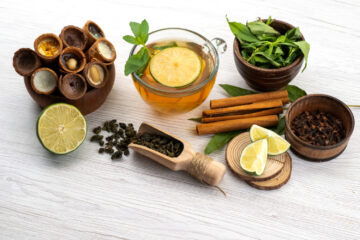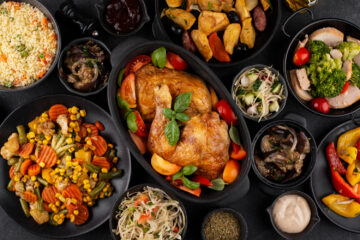10 Foods That Aid in Stroke Recovery

Stroke, a cardiovascular ailment, is one of the leading causes of severe long-term disability worldwide. It arises when the blood supply to a part of the brain is disrupted, causing brain cells to die due to a lack of oxygen and nutrients. The aftermath of a stroke varies depending on its type and severity, but it often leaves individuals grappling with physical, cognitive, and emotional challenges.
While rehabilitation, medication, and therapeutic procedures play a significant role in stroke recovery, adopting a heart-healthy diet has been proven to be immensely beneficial. A healthy diet not only aids in faster recovery by repairing brain cells and improving brain functions but also helps prevent recurrent strokes.
This comprehensive guide will provide an in-depth exploration of 10 foods that are scientifically proven to aid in stroke recovery, along with their health benefits and some delightful ways to incorporate them into your daily meals.
1. Fatty Fish
Rich in Omega-3 fatty acids, fatty fish like salmon, mackerel, and tuna are known for their anti-inflammatory properties and ability to support brain health. Omega-3s help repair damaged brain cells and improve cognitive function, crucial for stroke survivors. Incorporate these fish in your diet by grilling, steaming, or baking them. You can also enjoy them in a salad or a sandwich.
2. Berries
Berries, including blueberries, strawberries, raspberries, and blackberries, are packed with antioxidants, which are essential in fighting off oxidative stress caused by stroke. These superfoods also contain flavonoids that improve brain health and aid memory function. Blend them in your morning smoothie or enjoy a handful of these vibrant berries as a snack.
3. Whole Grains
Whole grains like brown rice, oats, and whole-grain bread are excellent sources of fiber, which aids in maintaining a healthy weight and lowering cholesterol levels. They also regulate blood sugar levels, thus helping to prevent recurrent strokes. Try swapping refined grain products with their whole-grain counterparts for a healthier diet.
4. Leafy Greens
Kale, spinach, and other leafy green vegetables are high in antioxidants and essential nutrients like folate and vitamins E and K. These nutrients support brain health, decrease inflammation, and reduce the risk of chronic diseases. Incorporate these greens in your meals as salads, or blend them into your smoothies.
5. Nuts and Seeds
Almonds, walnuts, flaxseeds, and chia seeds are rich in healthy fats, fiber, and vitamin E. The healthy fats promote brain health and improve cognitive function, while fiber aids in maintaining a healthy weight. Vitamin E acts as an antioxidant, fighting off harmful free radicals caused by stroke. Enjoy them as snacks, or sprinkle them over salads and yogurt.
6. Avocados
Avocados are nutrient-dense fruits that are packed with monounsaturated fats, fiber, and several vitamins. The healthy fats in avocados support brain health and improve cognition. The fiber helps maintain a healthy weight, and the vitamins aid in overall health. Incorporate avocados into your diet by adding them to salads, sandwiches, or smoothies.
7. Legumes
Legumes such as beans, lentils, and chickpeas are high in fiber and protein, aiding in weight management and promoting muscle strength. They also contain folate, which is essential for brain function. Legumes can be a part of soups, salads, or main dishes in your diet.
8. Dairy
Low-fat dairy products like milk, yogurt, and cheese are great sources of calcium and vitamin D, which are essential for bone health, especially when physical mobility may be a challenge post-stroke. Choose low-fat or non-fat options to keep heart health in check.
9. Citrus Fruits
Citrus fruits like oranges, grapefruits, and lemons are high in vitamin C and antioxidants, which are essential in fighting off oxidative stress caused by stroke. They also contain flavonoids that support heart health. Enjoy these fruits fresh, in salads, or as juices.
10. Tomatoes
Tomatoes are packed with an antioxidant called lycopene, which has been linked to a reduced risk of stroke. They also contain potassium, which helps manage blood pressure levels. Enjoy tomatoes raw in salads, in sandwiches, or cooked in various dishes.
Conclusion
Maintaining a heart-healthy diet is a critical component of stroke recovery and prevention. Including these ten foods in your diet will not only support the recovery process but will also contribute to your overall health and well-being. Remember, it’s always important to consult with your healthcare provider or a registered dietitian before making any significant changes to your diet, especially during recovery. Stay strong, eat healthily, and strive for a speedy recovery!

















